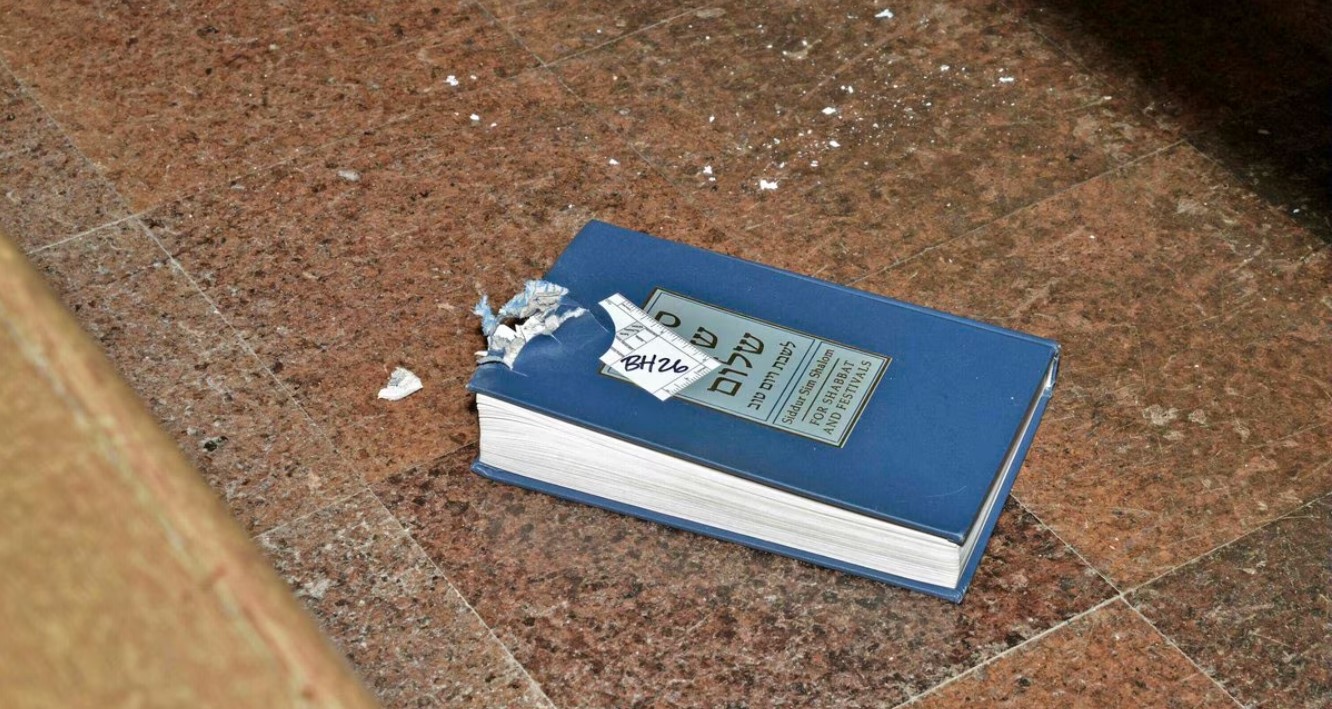The Massacre of 11: The Pittsburgh Synagogue Shooter Trial Explores the Lasting Impact of Anti-Semitic Violence

Pittsburgh, PA – With the weight of a nation’s grief and anger on their shoulders, a jury commenced deliberations on Thursday in the trial of Robert Bowers, the truck driver responsible for the heinous act that claimed the lives of 11 innocent worshippers at a Pittsburgh synagogue. The prosecution’s case was undoubtedly bolstered when Bowers’ defense team admitted that their client committed the deadliest anti-Semitic attack in the country’s history.
In a powerful opening statement before the jury began deliberations, a federal prosecutor emphasized that Bowers had transformed a sacred house of worship into a sinister “hunting ground” fueled by his deep-seated hatred of Jewish people. The jurors, after spending two hours considering numerous criminal charges against the 50-year-old defendant, adjourned for the day, with deliberations set to resume on Friday morning. The prosecution is seeking the death penalty.
In response to the impending verdict, New Light Congregation, one of the three Jewish congregations targeted in the Tree of Life synagogue on October 27, 2018, released a poignant statement that underlined the impossibility of forgiveness. They stressed that forgiveness requires both the offender to seek it and the victim to accept it, a condition that cannot be fulfilled since the shooter has not sought forgiveness, and tragically, the deceased victims are unable to accept it.
During closing arguments, the prosecutor passionately conveyed to the jury that Bowers selected his victims solely because of their religious affiliation. Mary Hahn, the prosecutor, underscored the extensive history of Bowers’ online presence, replete with anti-Semitic and white supremacist content. She emphasized, “He is filled with hatred for Jews. That is what propelled him to act.”
In a counterargument, Bowers’ attorney, Elisa Long, contended that her client did not intend to hinder individuals’ right to worship, a component of some of the charges against him. Long claimed in her closing argument that Bowers held the misguided belief that he had to target Jews due to their perceived support for immigrant and refugee causes—a belief she labeled as “nonsensical and irrational.” However, the prosecution swiftly responded, reminding the jury that Bowers specifically attacked a synagogue in the heart of Pittsburgh’s Squirrel Hill neighborhood, widely known as “the center of the Jewish universe.” His victims were devout worshippers, identifiable by their yarmulkes and prayer shawls on the Jewish Sabbath. U.S. Attorney Eric Olshan emphasized, “These aren’t people engaging in refugee assistance. These are people who are practicing their faith. And he kept hunting, looking for Jews to kill.”
Surprisingly, the defense chose not to call any witnesses or present additional evidence, having already conceded at the trial’s outset that Bowers committed the heinous act that claimed lives at the Tree of Life synagogue. The attack left seven others injured, including five police officers.
Bowers faces a staggering 63 criminal charges, including hate crimes resulting in death and obstruction of the free exercise of religion resulting in death. Prosecutors meticulously presented evidence highlighting Bowers’ deep-rooted animosity towards Jews and immigrants. Over the course of 11 days, the jury learned about Bowers’ extensive engagement with anti-Semitic and white supremacist content on the social media platform Gab, popular among the far-right. He openly praised Hitler and the Holocaust.
Brandishing an AR-15 rifle and other firearms, Bowers unleashed approximately 100 rounds during the attack. He reloaded multiple times, callously stepping over the bloodied bodies of his victims in search of more innocent lives to extinguish. Bowers only surrendered when he ran out of ammunition, after engaging in a gunfight with responding officers that resulted in him being shot three times. Hahn, the prosecutor, revealed that Bowers exclaimed to the police that “all these Jews need to die.”
The prosecutor specifically recounted the heartbreaking story of Bernice and Sylvan Simon, a couple who perished in the very pew they occupied week after week, year after year. Many of the victims were elderly, requiring canes and hearing aids to navigate their daily lives. Hahn, while reading the names of each of the 11 victims, implored the jury to “hold this defendant accountable…and hold him accountable for those who cannot testify.”
Assuming a conviction is reached, the trial will enter an anticipated protracted penalty phase, during which the same jurors will determine whether Bowers receives a life sentence or the death penalty. Bowers’ defense team has concentrated their efforts on advocating for his life to be spared, while the nation anxiously awaits the resolution of a trial that lays bare the horrors of anti-Semitism.